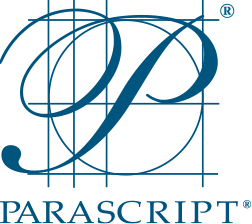Superbcrew recently interviewed Greg Council, the VP of Marketing and Product Management, about the Ultimate Document Challenge. For the full story, go to Superbcrew. Here are a few questions that Superbcrew asked Greg:
Q: What is the benefit of participating in this challenge?
A: The benefit of participating in this challenge is that not only will the selected business receive the complimentary Parascript Document Classification software solution that will automatically classify and extract information from any paper or e-document to increase efficiency, improve document security, and facilitate risk management but they will also benefit from the free configuration and implementation help by Parascript’s team. The benefit to Parascript is fairly obvious, too. We get to showcase our technology in new ways, give back to the business communities that have helped us define our platform, and expand our reach into new channels.
Q: What are the top industries that might participate?
A: We’ve opened the Ultimate Document Challenge to any organization or business in any industry that has to deal with processing large volumes of documents on a regular basis. Banks, credit unions, and other financial institutions are especially challenged in this area since they still deal with so many paper documents and must stay in compliance with government regulations. For example, documentation is collected (often 25 items with 200-300 pages or more per loan) throughout the lifetime of a mortgage and must be stored and easily accessible for audit and compliance purposes. Depending on their size, these financial institutions can process upwards of 50,000 loans per month. We currently service the financial industry. Parascript processes the majority of checks worldwide.
Law firms, insurance providers, pharmaceuticals, and government institutions also process enormous volumes of documents and need to classify, locate, and extract important data. They, too, would benefit from Parascript Document Classification solutions.
Q: What types of documents would be most representative for these industries? What are examples of data points for these documents?
A: Of course, that depends on the industry. If we take the financial service industry as an example, we are looking at documents that deal with opening accounts, loan origination, mortgages, and/or portfolio management. Data points range from standard loan information such as names, addresses, and employment information to sensitive personal data such as social security numbers and income data.
Q: What is Information Governance and how is this relevant? What is metadata?
A: Great questions and there are many ways to answer them. Information Governance is in broad strokes the three p’s: policies, procedures, and processes all focused on managing information enterprise-wide so that everybody within the organization has access to the data necessary for decision making, to do their work, and to ensure regulatory and legal compliance. Metadata is basically what it sounds like—it is data about data. In this context, every document can be automatically assigned metadata that classifies it in a certain group of documents and then organized that way. This is refined through business rules and machine learning so that the metadata provides the bones for building the organization’s taxonomy.
The full story is here, “Parascript – Transforming The Way Businesses Manage Document-Centered Work,” is published by Suberbcrew.
